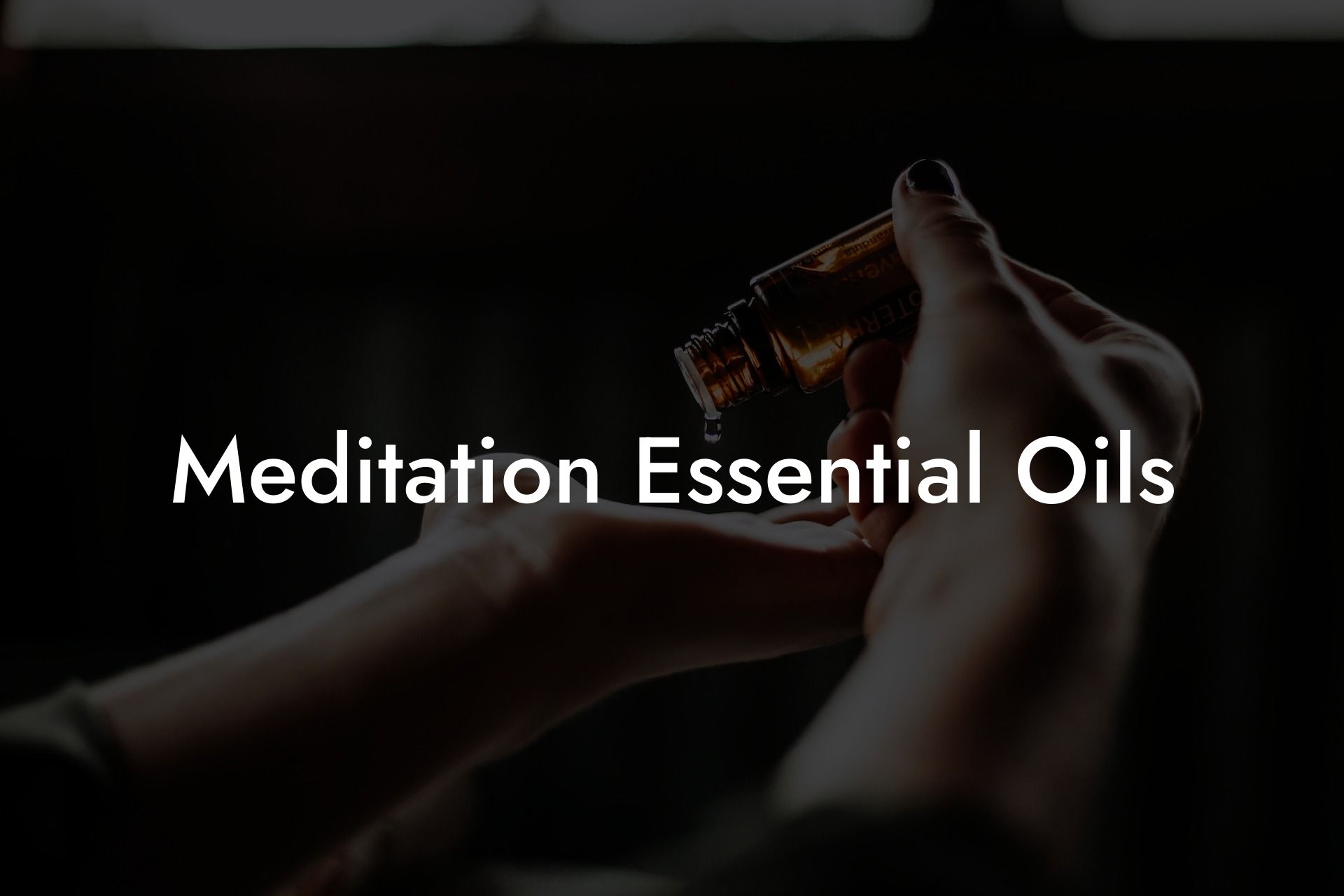Experience the profound benefits of meditation by incorporating essential oils into your practice. In this comprehensive guide, we explore the synergy between meditation and essential oils, revealing the best oils to inspire mindfulness, enhance focus, and uplift your spirit during your meditative journey.
Table of Contents
Why Use Essential Oils for Meditation?
Essential oils are concentrated plant extracts that harness the natural healing power of nature. By incorporating essential oils into your meditation routine, you can benefit from their therapeutic effects on the mind, body, and spirit. These powerful aromatic compounds can:
- Enhance relaxation;
- Promote clarity and focus;
- Reduce stress and anxiety;
- Support emotional healing; and
- Boost mood and energy levels.
Top Essential Oils for Meditation
Each essential oil has unique properties that can support and complement your meditation experience. Here are some of the most popular essential oils to consider adding to your practice:
1. Lavender
Renowned for its calming and soothing effects, lavender oil is excellent for promoting relaxation during meditation. It encourages emotional balance and helps to alleviate stress and anxiety.
2. Frankincense
This sacred oil has been revered for centuries for its profound spiritual and emotional benefits. Frankincense helps to deepen the breathing, promoting a meditative state while also easing tension and anxiety.
3. Sandalwood
Known for its grounding and balancing properties, sandalwood oil is an ideal choice for grounding meditation. It fosters mental clarity and focus, allowing you to tap into your inner wisdom during your practice.
4. Cedarwood
Cedarwood oil’s warm, woody scent is grounding and calming, making it perfect for quieting a racing mind during meditation. It also has a balancing effect on emotions, encouraging stillness and inner strength.
5. Peppermint
For those who struggle to stay focused during meditation, peppermint oil is a great choice. Its invigorating and refreshing aroma helps to sharpen the mind, improve concentration, and reduce mental fatigue.
6. Ylang Ylang
Ylang Ylang oil has a unique floral fragrance that has a calming effect on the mind and body. It helps to release negative emotions, balance the mood, and elevate feelings of self-worth.
How to Use Essential Oils in Meditation
There are several ways to incorporate essential oils into your meditation practice:
- Diffusion: Use an essential oil diffuser to disperse your chosen oils into the air during your meditation session.
- Inhalation: Dilute a few drops of essential oils in a carrier oil and rub it onto your palms. Cup your hands and inhale deeply before starting your meditation.
- Topical Application: Mix your essential oils with a carrier oil and apply it onto your temples, wrists, or the back of your neck. Use oils that are safe for topical use and perform a patch test beforehand.
Meditation Essential Oils Example:
Jane is a busy professional who often deals with work-related stress and finds it difficult to unwind. She decides to start a meditation practice but struggles to focus and quiet her thoughts. To enhance her meditation sessions, she chooses to use lavender and sandalwood essential oils.
Jane starts by diffusing a few drops of lavender and sandalwood oils in her room before beginning her meditation. As she inhales the soothing, grounding aromas, she begins to feel her tension melt away and her mind clear. Over time, Jane finds that her meditation sessions become more fulfilling and enjoyable, enabling her to enter a state of peace and tranquility more easily.
Incorporating essential oils into your meditation practice can significantly enhance your experience, promoting relaxation, focus, and spiritual growth. Why not explore Oshu Oils’ extensive range of high-quality essential oils to elevate your meditative journey? Share this article with friends and family who may also benefit from the powerful synergy of meditation and essential oils, and discover our other informative guides on Oshu Oils and the world of aromacology.





















